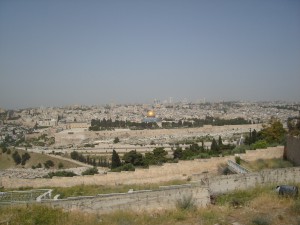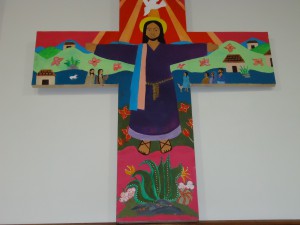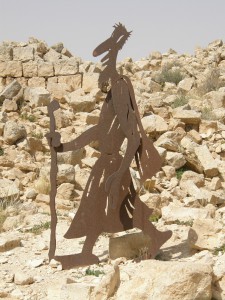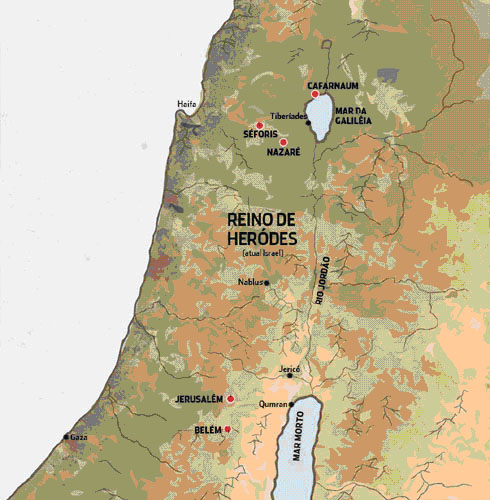A comment on John 2, 13-25:
Third Sunday of Lent, March 8th 2015
This third Sunday of Lent, and the other two that follow we leave out Mark and take up the gospel of John, which separating itself from the Synoptics (Matthew, Mark and Luke) present Jesus in Jerusalem right from chapter two, that we are reading today. Meditating on this reading I share here points:
1) To purify religion
The Temple of Jerusalem –and the City itself- were among the most sacred things for Jesus, a devout Jew, and his disciples. The Temple and the City were somehow like a “sacrament” of the marvellous God’s presence in the life of Israel and its inhabitants. From childhood, Jesus visited and loved them from all his heart, because in those holy places he could see the “imprints” of God’s passing in his people’s history. In the Temple he could find his the two great loves: his Father and his People. So he can say truly with the psalmist: “Zeal for your house will consume me”. And it is precisely this zeal that is causing in him such a rebellion against the state of corruption that religious leaders and merchants had introduced into its rites. Jesus plans to purify the Temple, knowing that God cannot be “trapped” in any institution, even the most sacred one. In fact, later on in the same gospel of John, Jesus will tell the Samaritan woman: “The hour is coming when neither on this mountain nor in Jerusalem will you worship the Father… The true worshippers will worship the Father in spirit and truth”.
Religious people can be tempted to manipulate or treat superficially holy rites and places. Certainly, we need rites and holy places to pray and celebrate, but, be careful, but don’t try to put them at the service of your interests, individual or collective ones. The disciples of Jesus must always be careful not to follow into the trap of abusing the treasure we have received, rather we must try to purify continuously our religious practices.
 2) The sign of the body
2) The sign of the body
When Jews asked him what kind of signs he was doing to justify the deep purification he was proposing, Jesus answered that the sign was his own body, which was to become the true “temple”, the place where God and humanity met “in spirt and truth”. The disciples’ faith has its centre, not in in a geographical place, but in the body of Jesus, o body that went through an extreme suffering and, at the end, experienced the triumph of God.
If in communion with the body of Christ, also our body (concrete expression of our spirit) becomes a place for meeting God: a body able to work, to suffer and to love in a concrete and tangible manner; a body that can go on its knees to adore; a body that bends itself to wash the feet of our neighbour; a body that serves the Poor and the needy; a body that sees, listens and embraces the suffering bodies of many suffering children of God. As Pope Francis says, the sick and the poor are the body of Christ. To serve them is equal to adore God. To abuse them is a blasphemy.
3) A weak faith
John tells us that, when people saw the signs Jesus was doing, many believed, but Jesus did not trust them. In the gospels we can see how much opposition and betrayal Jesus has to cope with, to the point that He ended up practically lonely and abandoned by everyone. Certainly, in the life of Jesus there were moments of enthusiasm, when people were following Him, thinking that He could be a king or a chief useful for their economic, political or religious interests. But Jesus did not allowed himself to be deceived by this superficial enthusiasm that could lead him astray from the mission the Father has entrusted to him. Jesus remained always confident, with the feet on the ground, free, open and faithful to the death, in spite of the inconsistency of those around him.
The temptation of an easy and superficial enthusiasm can affect us also, as individuals or as groups. Each one of us, our own community or the Church as a whole, can be satisfied with a superficial religiosity or even try to try methodological tricks to attract followers, even if they are not very serious ones… This is not the Jesus’ way. He is not too much worried about those who abandon easily nor does he confuse the superficial applause with an authentic faith; he knows, however, how to recognize a sincere faith, “incarnated” in the body of people’s suffering; a faith that transforms a life given out in adoration and service to the “body of Christ”, present alike in the Eucharist and in the Poor.
We pray that the Spirit of Jesus opens us to this sincere, concrete and consistent faith, in spite of our doubts and weaknesses.
F. Antonio Villarino
Roma






![Imagen%20101[1]](https://lmcomboni.org/blog/wp-content/uploads/2015/02/Imagen-1011-300x225.jpg)
